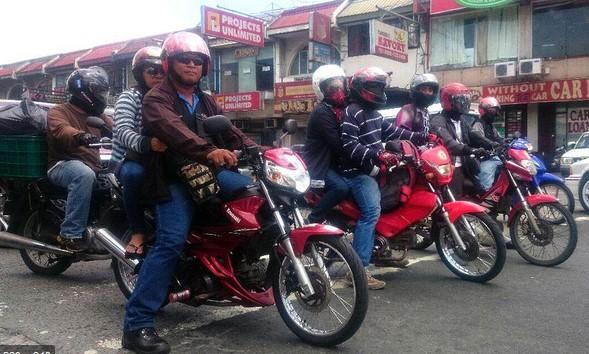No limits on number of motorcycle taxi franchises, units eyed in House proposal
By TED CORDERO, GMA Integrated News Published March 8, 2024 5:52pm There will be no legislated limits or “hard caps” on the number of motorcycle taxi franchises and units under a proposed measure institutionalizing the two-wheel vehicle as a mode of public transportation. According to House transportation committee chairperson Romeo Acop of Antipolo, it would […]


By TED CORDERO, GMA Integrated News
There will be no legislated limits or “hard caps” on the number of motorcycle taxi franchises and units under a proposed measure institutionalizing the two-wheel vehicle as a mode of public transportation.
According to House transportation committee chairperson Romeo Acop of Antipolo, it would be unwise to set caps in the proposed motorcycle taxi law as this would be addressed by competition among players in the motorcycle taxi industry.
Acop stated this during deliberations of the House panel, which on Thursday tackled the substitute bill that would pave the way for the legalization of motorcycles-for-hire or motorcycle taxis.
The lawmaker said that under the proposed measure, any limits to be imposed would be subject to the evaluation of the Land Transportation Franchising and Regulatory Board (LTFRB).
“Business is about competition, right? That’s why I do not see the wisdom of limiting it… by putting it on the law that a certain area should have x number of tricycles, motorcycle [taxis],” Acop said.
The lawmaker said the Department of the Interior and Local Government (DILG) currently lets local government units (LGUs) determine the caps on the number of tricycles in their respective jurisdictions.
For his part, 1-RIDER Party-list Representative Ramon Rodrigo Gutierrez said the members of the technical working group (TWG) assigned to finalize the provisions of the motorcycle taxi bill were unanimous that limits should be determined by LGUs, and “will stand by not having hard caps on the proposed bill.”
Risk of oversupply?
During the hearing, concerns were raised regarding the number of motorcycle taxis that would be allowed to ply Philippine roads.
Ronald Gustilo, national campaigner of the Digital Pinoys advocacy group, said his organization was pushing for caps in the law due to the dangers of the oversupply of motorcycle taxis.
Gustilo expressed fears that with an oversupply of motorcycle taxis, it would be difficult for riders to secure bookings.
Gutierrez, however, emphasized that the TWG-drafted bill provides that “in determining the number of franchises to be issued, the LTFRB shall take into consideration the LPTRP (Local Public Transport Route Plan).”
“The LTFRB shall approve the routes and number of units that may be allowed… there is no question on the fact on whether or not there will be limits, because there will be limits,” Gutierrez said.
The LPTRP details the route network, mode, and required number of units per mode for delivering land transport service.
Land Transportation Office Assistant Secretary Vigor Mendoza II reiterated the position of the TWG, saying that the law should not specify caps on the number of motorcycle taxis as this should be based on data and evidence.
“To put a cap at this early stage would be premature considering that there are so many factors of consideration in determining demand. Population is one, the need in a certain area is one—and all this is a matter of evidence that has to be proven,” Mendoza said. — VDV, GMA Integrated News














